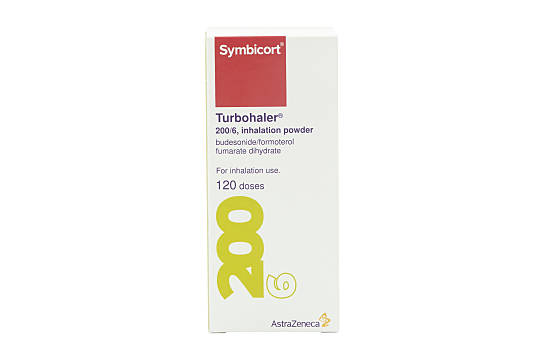Asthma Treatment

Medically reviewed by
Dr Kathryn BasfordLast reviewed: 01 May 2019
Asthma is a chronic condition that can’t be cured, but it can be managed with treatment

Key takeaways
Tests that show whether you need asthma treatment include spirometry and peak flow tests
Long-term asthma treatment can involve preventer inhalers to help improve your lung function and avoid asthma attacks
Short-term asthma treatments like reliever inhalers are used when you get asthma symptoms
Side effects of asthma treatment are not very common because the medication mostly affects your lungs directly
Asthma treatment includes lifestyle changes as well as medications, such as quitting smoking or practicing breathing techniques
Asthma is a chronic long-term health condition that can’t be cured, but is managed with asthma treatment.
It’s caused by inflammation and sensitivity in the airways, which narrow and swell up. This inflammation means the airways are constricted, which causes wheezing and difficulty breathing. Mucus is produced, clogging up the airways and making you cough. People with asthma often describe the feeling as being like a band around their chest, restricting their breathing more and more.
What are the symptoms?
Symptoms of asthma include wheezing (a whistling sound when you breath), coughing, difficulty breathing, and a tight chest. If your symptoms seem to be worse during the night, speak to your doctor as this can be a sign that your condition is getting worse or that your asthma treatment needs to be changed to manage it better.
Which types of asthma treatments are there?
When treating asthma, it’s important to maintain healthy lung function. Sports and regular physical activity can help you achieve this. In addition, you may need long-acting medication. There are several types of treatments for asthma which include different types of asthma inhalers (e.g. Salbutamol to relieve symptoms, steroid inhalers to prevent symptoms, and some inhalers that combine the two). There are also tablets that can be used to control asthma symptoms, and also to treat asthma attacks.
If you’re suffering from allergic asthma, it’s also important to start a therapy for your allergy and minimise exposure to the allergen.
The long-term goal of any asthma treatment is to reduce inflammation in your lungs, and to maintain them in a relaxed, open state. This way, asthma attacks can be avoided in the long run or will at least occur less frequently. This means that most people will be recommended to use a regular preventer inhaler, and not just wait for symptoms to start to use a reliever inhaler.
When the symptoms get very bad, that’s known as an asthma attack. During an asthma attack, the chest tightens and the person fights to catch their breath. For most people, severe asthma attacks build over the course of between 6 and 48 hours, but some people may find that their attacks develop rapidly and without a warning. Severe attacks can be fatal and require immediate hospital treatment. In the case of a severe asthma attack, call 999.
from £11.95
from £12.95
from £22.95
from £49.95

No results found.
Please check your spelling or try another treatment name.
Treatment for acute asthma attacks
Asthma attacks need to be treated quickly and effectively to open up the airways so that the person can breathe easily again.
The first step is to use a reliever inhaler (usually salbutamol, or the brand Ventolin), which will help to relax the airways. If this doesn’t help the symptoms, or if they come back again quickly, then more treatment would be needed and it’s important to see a doctor without delay – by attending A and E or phoning 999.
Salbutamol and other medications can be given through a mask and nebuliser which helps get to the lungs. Steroids are also used to reduce inflammation – either in tablet or liquid form or through a drip.
Causes of asthma
Asthma attacks often happen in response to certain asthmatic triggers, like dust, pollen, cigarette smoke and animal fur. In some cases, asthma attacks are less predictable and can be caused by anxiety and stress, exercise, coughing and laughing. Other triggers include:
- airway and chest infections
- medicines (e.g. ibuprofen and aspirin or other non-steroidal anti-inflammatory drugs)
- weather conditions (sudden changes in temperature/cold air/windy days/poor air quality/hot and humid weather/thunderstorms can trigger an asthma attack)
- food that contains sulphites (sulphites are often used as a preservative in food and can be found in many processed or pre-cooked foods, jam, concentrated fruit juice and prawns)
- chemicals in carpets, house dust mites, mould and damp
- food allergies, e.g. to nuts
What is occupational asthma?
Some people find that their asthma is much better on days when they are not at work. This can be a sign of occupational asthma and it normally appears in people who work as paint sprayers/bakers or pastry makers/nurses/chemical workers/animal handlers/welders/food processing workers/timber workers. Your doctor may ask you to take a peak flow test at work and outside work and then compare the readings. If the reading suggests that you have occupational asthma, your doctor will refer you to a occupational medicine specialist and/or ask you to take some tests to see if you are allergic to some of the common causes of occupational asthma.
Why do some people get asthma?
Genetics and the environment are just two of the factors that can increase your likelihood of developing asthma. You’re more at risk of getting asthma if you:
- have a family history of asthma, or of allergic conditions like hay fever, eczema and food allergies
- develop another allergic condition (allergic conditions are also known as atopic conditions) like a food allergy
- had bronchiolitis when you were a child
- were around tobacco smoke as a child, or if your mum smoked when she was pregnant with you
- were a premature baby (and needed a ventilator)
- were underweight when you were born (2kg/4.5.lb)
Getting diagnosed
Your GP will ask you about your symptoms and whether you have noticed what causes them or makes them worse. Normally your GP will be able to diagnose asthma for you. There are also several tests that can diagnose asthma.
What is a spirometry?
The first is a breathing test known as spirometry, which looks at how well your lungs are working. You breathe into an instrument called a spirometer and it measures the volume of air you can breathe out in a single second. Your doctor might refer to this as the FEV1 or the forced expiratory volume in one second. The spirometer also measures the total volume of air you can breathe out, which your doctor might refer to as the FVC or forced vital capacity.
What do I need to expect?
You might have to do the test a few times for your doctor to get the most accurate reading possible. Your doctor will then look at your readings alongside the average reading for someone of your age. By comparing the two readings, your doctor will be able to tell if your airways are obstructed and whether you have asthma.Your doctor might also get you to give a few readings by breathing out, and then ask you to use a reliever inhaler (the medication that opens up your airways) and do the test again. This shows, whether the medication has improved your breathing. If it has improved your breathing, it supports a diagnosis of asthma.
How does a peak-flow test work?
Another test is the peak expiratory flow test or peak flow test. This small machine measures how fast you can blow air out of your lungs in a single breath. The result is known as your peak expiratory flow rate or PEFR. You might be asked to do this test at home and keep a diary of your results and any symptoms you notice. This will help you to attune to how your asthma is day to day and help you to notice when it gets worse.
Which other tests can help to determine whether I have asthma?
In most cases, these two tests will be enough to get a diagnosis for asthma. However, sometimes people need to do more tests for their doctor to establish whether they have asthma. The other tests that your doctor might ask you to do include:
Airway responsiveness tests – this test aims to trigger asthma symptoms. You’ll be asked to breathe in a dry powder (at first as a small amount and then increasing) and then breathe into the spirometer to measure the change in your FEV1 and FVC. If these scores have decreased by a significant amount, you may have asthma.
Tests to assess your airway inflammation – the doctor might look to see if there are any signs of inflammation in a sample of your phlegm or measure how much nitric oxide there is in your breath when you exhale (high levels of nitric oxide are usually a sign of airway inflammation).
Allergy tests – A blood test or skin test can be used to find out which allergens trigger your asthma.
Which asthma treatment is right for me?
Which asthma treatment you require depends on your symptoms. Your doctor might ask you to write an action plan to help you recognise when your asthma is getting worse, when you are likely to have an attack and to monitor your symptoms and triggers.
Why do I need to use an inhaler?
Your doctor will also prescribe you with asthma medication. Normally this comes in an inhaler. With an inhaler, the asthma medicine goes straight to the lungs and very little of it ends up in other places in your body. Each inhaler is different though, so ask your doctor how to use it.
What is a spacer used for?
Some types of inhaler have an aerosol jet built into them to push the medication into the airways with more power. To make this type of inhaler even more effective, your doctor might recommend that you use a spacer. A spacer is a small, plastic or metal device – one end of it fits onto your inhaler, the other has a mouthpiece. The inhaler puffs the medicine into the spacer and you breathe it in through the mouthpiece. Spacers make sure that the medication distributes evenly across the lungs. For this reason, they might be recommended for anyone, but they are also good for people who struggle to use a standard inhaler. Spacers also make you less likely to get oral thrush – which can be a side effect of taking asthma medication.
What are long-term bronchodilators?
Long-term bronchodilators are efficient at widening the airways and corticosteroids (e.g. cortisone) work very well to treat the inflammation. Immunotherapy is also a good idea for people with allergic asthma. Drugs such as cromolyn or nedocromil can be used to prevent and reduce the inflammation.
As you can see, there is a relatively wide range of drugs. Your doctor will work with you to find the most suitable treatment for your asthma.
Asthma treatment is first and foremost a long-term therapy that is aimed at controlling the condition. Asthma inhalers are an important part of this treatment, as no other drug can relieve the symptoms as fast and as effectively.
Are there long term side effects to asthma treatment?
Most asthma medications have very few side effects as long as you don’t use them too often. They are safe and effective. The most common side effects are shaky hands, headaches and muscle cramps (but normally these only happen with reliever inhalers and last for just a few minutes). Preventer inhalers cause few side effects – the most common is oral thrush (a fungal infection in the mouth or throat) and a hoarse voice. If you use a spacer, this lowers the risk of these side effects.
After treatment what should I expect?
Your asthma may get better and worse throughout your life. Quitting smoking, living a healthy lifestyle and taking your medication in line with your doctor’s instructions will all help you to manage your asthma. You should also get a flu jab every autumn. Keep in regular contact with your healthcare team, and review your symptoms and medication at least annually. You might like to talk to your doctor about other ways that you can look after yourself.
Getting treated
When do I need to see a doctor?
Speak to your doctor if your symptoms seem to be worse during the night, or if you’re needing to use your reliever inhaler more than 3 times a week. This can be a sign that your asthma is getting worse or that your treatment needs to be changed to manage it better. It is important that you get in touch with your doctor if the frequency or severity of you symptoms increase.
Do I need a prescription?
You can get an inhaler with a prescription from your GP. Several pharmacies also stock inhalers – you have to fill in a questionnaire and speak to the pharmacist to get one.
Can I get treatment on the NHS?
Yes.
When to see a doctor
What are the symptoms of a severe asthma attack?
You’ll know if it is a severe asthma attack if:
- the reliever inhaler (usually this is the blue inhaler) has very little or no effect on your symptoms
- the wheezing, coughing and tight chest are relentless
- you're too breathless to talk
- your pulse rate is very fast
- your lips or fingernails are going blue
- you feel nervous and frantic
Call 999 if you or someone you are with has these symptoms.
How often should I see my GP?
If you are not having problems managing your asthma, you should review your treatment with your doctor once a year. If you are noticing changes in your symptoms or are concerned, speak to your doctor as soon as possible.
Can asthma in children be treated?
Asthma is one of the most common long-term conditions in children. There are treatments available. Whilst asthma is a lifelong condition, there are things that you and your child can learn to do to manage your asthma so that you can lead a healthy and active life. You should speak to a doctor if you believe your child might have asthma. As an online doctor service, ZAVA is not able to accept patients under the age of 18.
Types of asthma inhalers
The two most common types of inhalers are reliever inhalers and preventer inhalers.
When do I need to use a reliever inhaler?
Reliever inhalers contain medication that relieves asthma symptoms straight away. They normally contain a medicine called a short-acting beta2-agonist. They work by relaxing the muscles around the narrowed airways. This gives the airways space to broaden and open up, making it easier to breathe. Salbutamol and terbutaline are both common types of reliever medicines. The reliever inhaler is often blue. Everyone with asthma should be given one.
What is different about preventer inhalers?
Preventer inhalers contain medication to soothe aggravation and inflammation in the lungs and so reduce the number of asthma attacks you have. They contain a medication known as an inhaled corticosteroid. The medication takes a while to have an effect, so you’ll need to use the inhaler daily for a while before you get the full benefit of it. Smoking makes preventer inhalers less effective. Beclometasone, fluticasone, budesonide and mometasone are types of preventer treatments. The preventer inhaler is usually brown, red or orange.
Who needs to use a preventer inhaler?
Your doctor will probably suggest preventer treatment if you wake up with asthma symptoms once a week or more, if you have asthma symptoms more than two times a week, or if you have to use the reliever inhaler three or more times a week. You should rinse your mouth out after using your preventer inhaler as the medication can cause oral thrush. There are also other less common treatments and add-on therapies.
How do long-acting reliever inhalers work?
If your asthma isn’t getting any better with treatment, your doctor can increase the dose of your preventer inhaler. If this also fails to work, you may wish to try a long-acting reliever inhaler as well.
If you use a long-acting reliever inhaler, you must use it alongside your preventer inhaler (the brown inhaler). Research shows that just using the long-acting reliever inhaler by itself increases the chance of an asthma attack. It has also been shown to increase the risk of death when used on its own.
Long-acting reliever inhalers work like a short-acting reliever inhaler (the blue inhaler) but they take longer to work and last for about 12 hours. Formoterol and salmeterol are types of long-acting relievers. It is possible to get inhalers that combine the medication that is normally in the preventer inhaler (the brown inhaler) with the medication that comes in a long-acting reliever inhaler. This is known as a ‘combination’ inhaler. Seretide, Symbicort and Fostair are all combination inhalers (they are usually purple, red and white or maroon.)
Which additional preventer medicines can be prescribed?
There are additional preventer medicines that you may need to try if this still does not improve your symptoms. These are:
Leukotriene receptor antagonists (montelukast): These tablets stop part of the chemical reaction that happens during the inflammation of the airways.
Theophyllines: these tablets help to open the airways up wider by relaxing the muscles that surround them.
If this doesn’t work, your doctor may ask you to take oral steroids. Oral steroids can have quite serious side effects, especially if they are taken long term, so they are a bit of a last resort. A respiratory specialist would normally monitor this treatment. Most people can get away with taking a course of oral steroids for a couple of weeks until their symptoms are back under control, then they can go back to their previous pattern of treatment.
What is Omalizumab (Xolair)?
This is a new type of drug recommended for people who have frequent and very severe asthma attacks that cause them to go to A&E and/or be hospitalised. It is only prescribed in specialist centres and is administered an injection once or twice a month. It works by binding itself to one of the proteins that takes part in the body’s immune response, and decreases the level of this in the blood.
What is a bronchial thermoplasty?
Bronchial Thermoplasty is a new procedure that is done under general anaesthetic. A hollow tube called a bronchoscope is put into the airways through the mouth and expanded until it touches the airway walls. It is then heated up. The long term risks and benefits of this procedure are not yet understood in full, but it appears to reduce the frequency of asthma attacks and make life easier for people with very severe asthma. You would normally have three of these treatments, each three weeks apart.
Do natural remedies work?
Breathing techniques, including yoga, breathing exercises taught by a physiotherapist and the Buteyko method, can effectively reduce the symptoms of asthma. Some people have reported that they needed their reliever medication less as a result of breathing techniques.
Chinese medicine, the Alexander technique, acupuncture, homeopathy, dietary supplements and ionizers are all used by people to treat asthma. There isn’t much evidence to support their effectiveness.
Which side effects do asthma treatments cause?
The chances of experiencing short term side effects as a result of your asthma medication are very low because the medication goes straight into the airways and stays in the area where it is needed. Very little of the medication goes elsewhere in the body. Most asthma medications have very few side effects as long as you don’t use them too often. They are safe and effective. The most common side effects of reliever inhalers are shaky hands, headaches and muscle cramps (but normally these only occur when you’ve taken a high dose and these effects usually last for just a few minutes, at most a few hours).
Do I need to expect side-effects with preventer inhalers?
Preventer inhalers cause few side effects. The most common side effect is oral thrush (a fungal infection in the mouth or throat) and a hoarse voice. You might also get a sore mouth or tongue. If you use a spacer, this lowers the risk of thrush. However, children who are using preventer inhalers should be monitored closely. You should especially keep an eye on their growth. Research suggests that elderly people who use preventer medicines have a slight increased risk of developing cataracts.
Can long-term and high-dose preventer medicines cause any side-effects?
Long-term and high-dose use of preventer medicines can cause other side effects, which is why doctors try to prescribe the lowest dose possible to manage the symptoms.
Other side effects of steroid tablets:
- Fattened face
- Increased appetite, resulting in weight gain
- Feeling overactive, resulting in difficulty sleeping
- Mood swings and depression
- Heartburn and indigestion
- Bruising easily
- Osteoporosis
- Lower resistance to chickenpox (may be more serious)
You can reduce the risk of these side effects by:
- not smoking (reduces risk of osteoporosis,
- taking the steroids only in the morning (speak to your doctor to check this fits your prescription)
- taking daily calcium supplements (evidence that this helps is patchy)
- walking for 20 minutes a day
Which conditions do I need to mention to my doctor?
Your doctor will need to consider carefully whether or not to prescribe asthma medication if you:
- are allergic or sensitive to or have had a reaction to any of the ingredients in the medicine
- have a low level of oxygen in the blood
- have diabetes
- have thyrotoxicosis
- have cardiomyopathy
- have galactose intolerance
- have glucose-galactose malabsorption problems
- have heart problems
- have kidney problems
- have Lapp lactase deficiency
- have liver problems
- are pregnant or breastfeeding (your doctor will recommend taking this medicine if he thinks you need it)
But, the cautions vary between the different types of medications. Always read the patient information leaflet before taking any medication.

Dr Kathryn Basford is a qualified GP who works as a GP in London, as well as with ZAVA. She graduated from the University of Manchester and completed her GP training through Whipps Cross Hospital in London.
Meet our doctorsLast reviewed: 01 May 2019
-
Asthma, Treatment, National Health Service [accessed February 2023]
-
Preventer inhalers, Asthma and Lung UK [accessed February 2023]
-
Combination inhalers, Asthma and Lung UK [accessed February 2023]
-
Steroid inhalers, National Health Service [accessed February 2023]
-
Asthma, chronic, NICE/British National Formulary [accessed February 2023]
ZAVA offers reliever inhalers to help manage asthma and for effective relief from symptoms.












